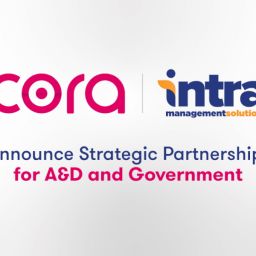
Martin Hartley, Group CCO, business and consulting services company emagine
Over the last decade, organisations have shifted from being operationally driven to increasingly project-oriented. Traditionally, project managers have been crucial to successful project execution, managing timelines, resources, and stakeholder expectations. However, the advancements in artificial intelligence (AI) have led to increased integration of this technology into daily project management. AI can now handle routine tasks, optimise schedules, and predict risks with impressive accuracy. The project manager role is evolving, and adapting to these changes is essential.
Where can AI bring efficiencies?
The areas in which AI brings the greatest benefits include information management, project planning, budgeting and risk management. AI’s ability to streamline processes, assist in decision making and enhance automated routine tasks means that businesses will get left behind if they do not embrace the opportunities this technology offers.
One of the main ways in which AI can assist in project management is its ability to manage vast amounts of data and ensure this data is well organised so that it can be used most effectively. By leaning on technology to support project management systems, it frees up time for project managers to focus on the more strategic areas of their work.
Projects benefit from AI’s ability to analyse data much faster and more accurately than humans, enabling more informed decisions which can amplify project success. AI also provides an extra layer of confidence by identifying potential risks and recommending mitigative strategies before they impact the project. This proactive approach to risk management can save substantial time and resources, ensuring that projects are completed within scope, on time, and within budget.
However, the technology has its limits and project managers still have their role to play, for example in areas of people and conflict management and leadership.
What are the stumbling blocks?
Project managers should consider the ethical challenges associated with the integration of AI into the daily processes of the organisation. As AI systems become more sophisticated and autonomous, concerns regarding bias in data and lack of transparency in decision-making algorithms are relevant as well. Steps can be taken to remedy where issues arise, but organisations must remain vigilant to prevent unwanted problems down the line.
Before implementing AI-driven processes, project managers need to be sure that their organisation is ready to embrace the new technology. For example, the data needs to be optimal for AI to be leveraged successfully. This requires the data to be high quality and organised in the correct categories. Project managers must also ensure there are suitable experts within the team who have enough expertise to manage and maintain the technology effectively on an ongoing basis.
Choosing the right tasks for AI tool integration is important and can be done by evaluating pressure points. For example, if time saving is vital for the organisation, AI would be a valuable resource to support this and drive productivity. Choosing the right AI tool that suits your organisation can be a difficult decision. Online tools such as Monday, Asana and Writa can help to automate tasks, streamline project workflows, plan projects and create summary reports to send internally and externally. Consultants are also favouring Chat GPT as a tool, specifically the business version, to draft documents and to get a quick insight into a professional model, methods or tool.
There is unease that technology will remove the need for project managers. However, the reverse is true as technology needs supervision but also frees up time for the strategic and people-focused tasks. By embracing AI tools, project managers can set themselves apart and stay ahead in a rapidly evolving landscape, so long as they maintain an adaptive mindset. If they commit to continuous learning, foster collaboration within their teams and remain agile, they will be able to understand and leverage AI to mitigate common project management risks and roadblocks, and steer teams towards project success and improved efficiency.















